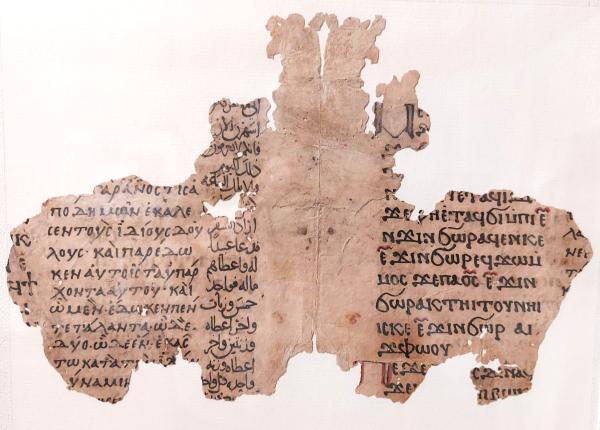Multilingualism and the Emergence of a New Written Language as a Transformation of Discourse Traditions
- AV ČR
A project of the Lumina quaeruntur Fellowship provided by the Czech Academy of Sciences for the years 2025–2029. The project aims to theoretically describe and analyse the mechanisms behind the emergence of new written languages or language varieties within the multilingual contexts of different European cultural traditions during the medieval and early modern periods. The research will compare philological methodologies across traditions. The starting methodological basis is the theory of discourse traditions, which assumes that no written tradition emerges ex nihilo (Koch 1997), but appears as a transformation of a written tradition in contact or as a blend of a vernacular and a contact culture.
Bibliography
- Knoll, Vladislav. 2025. Multilingualism in the Cyrillic Manuscripts and Early Prints. In: Cyrillic Manuscripts. From Medieval to Digital, edited by Vyacheslav Lytvynenko et al. New York: Peter Lang, 2025, 37 – 62.
- Džunková, Katarína. 2025. „Pravoslávna misionárska lingvistika v Ruskom impériu (špecifiká a problémy žánru).” Slavia 94/1 – 2: 108 – 129.
- Knoll, Vladislav. 2025. „Early Romanian Cyrillic in the Context of Church Slavonic Spelling.” In: Cyrillic Manuscripts. Scripts and Language, Scribes and Collections, edited by Antoaneta Granberg et al. New York: Peter Lang, 27 – 56.
Call for Papers
MULTILINGUALISM AND THE GENESIS OF A NEW WRITTEN TRADITION
Prague, 8 – 9 October 2026
A new language or, more generally, a new written tradition never appears ex nihilo, but is often the product of a linguistic and, above all, cultural contact. This may lead to the genesis of a new discourse tradition as a transformation of an existing discourse tradition in contact or as a blend of the local (e.g. oral) and contact tradition. Thus, the emergence of a new written tradition presupposes the existence of multilingualism of at least a part of the speakers of a given language (i.e. of a given discourse community), which creates the conditions of linguistic and cultural contact. In the medieval and pre-modern world, such new written traditions often emerged in contact with a classical/ritual language in order to mediate, explain and disseminate the dominant culture, or to perform the functions foreseen by the new cultural pattern, but for which the use of the cultural language was inappropriate or impractical. Especially in the modern world of polyfunctional languages, such a trigger for the emergence of a new written tradition can be the rise of self-confidence of a local group trying to be a match for the dominant language, at least on some levels.
The conference is organised within the framework of the Lumina Quæruntur Fellowship project Multilingualism and the Emergence of a New Written Language as a Transformation of Discourse Traditions, which aims to describe and analyse the mechanisms behind the emergence of new written languages or language varieties within the multilingual contexts of different European cultural traditions during the medieval and early modern periods.
We invite participants whose research addresses various aspects of multilingualism in connection to written traditions. In particular, we encourage participants to address the emergence of a new written tradition within medieval societies of different European cultural areas (Latin, Byzantine/Greek, Church Slavonic, Muslim, Jewish), but we are open to case studies from other periods (up to the present) or geographical areas.
The colloquium will be a hybrid event.
The conference language will be English. Abstracts (approximately 250 words) should be submitted to @email by 5 April 2026. The decision on the acceptance of the topic will be communicated by 1 May 2026.
